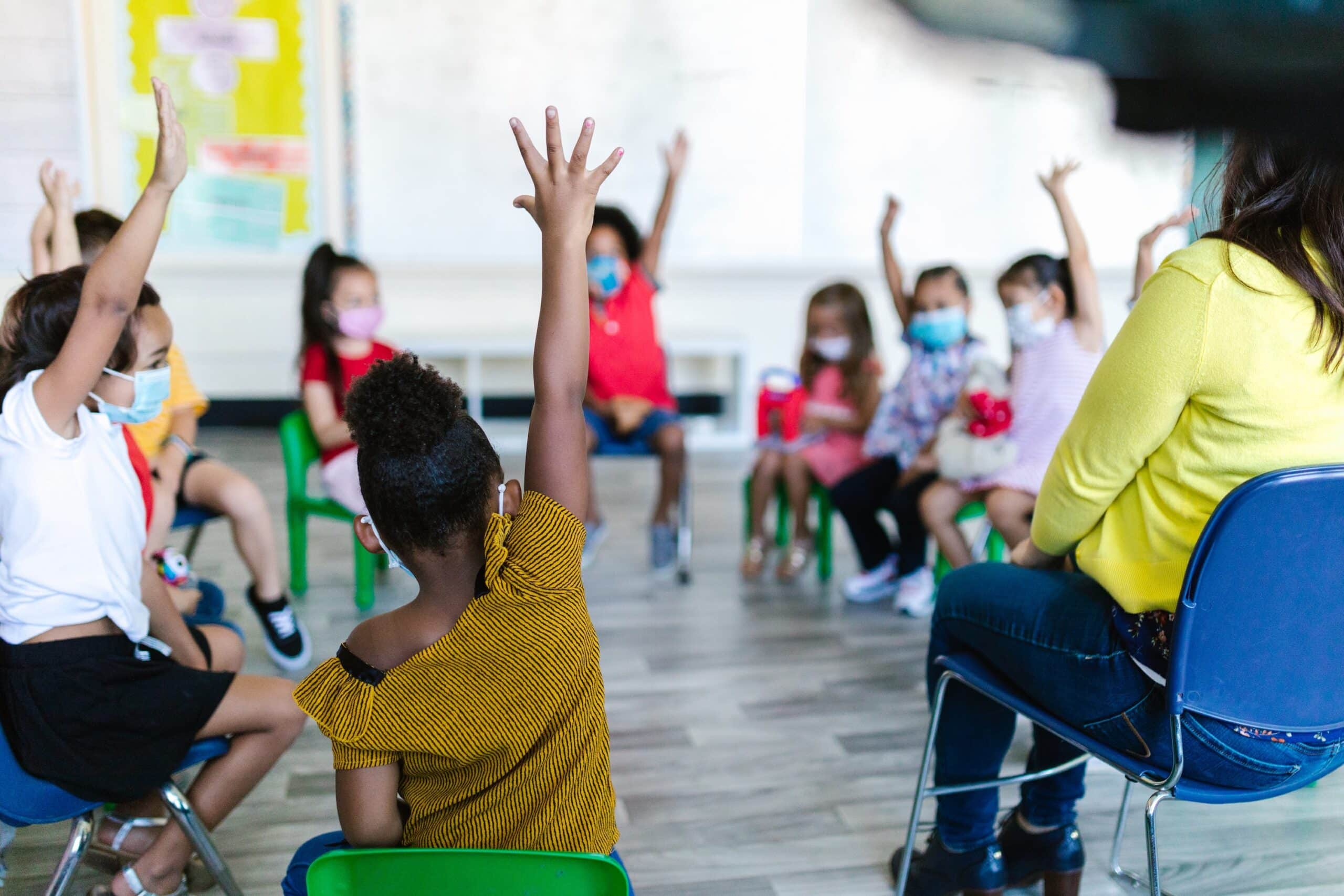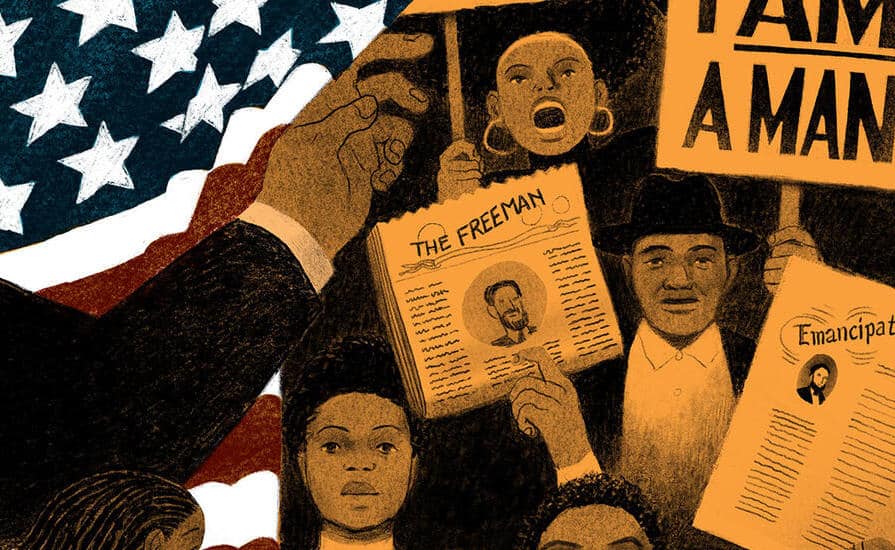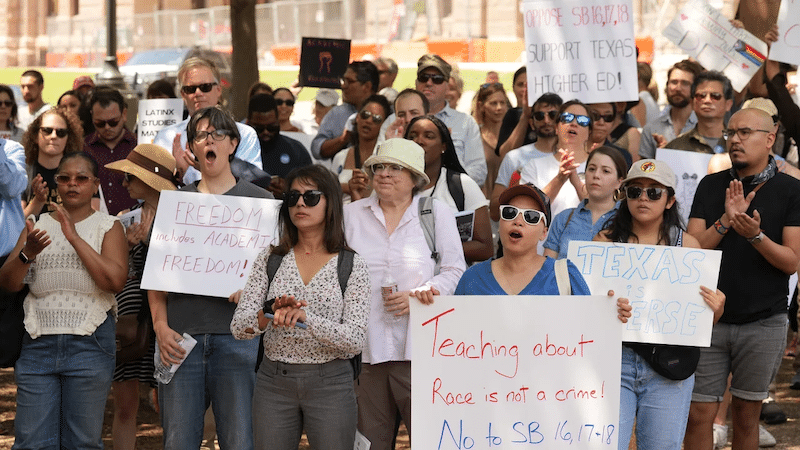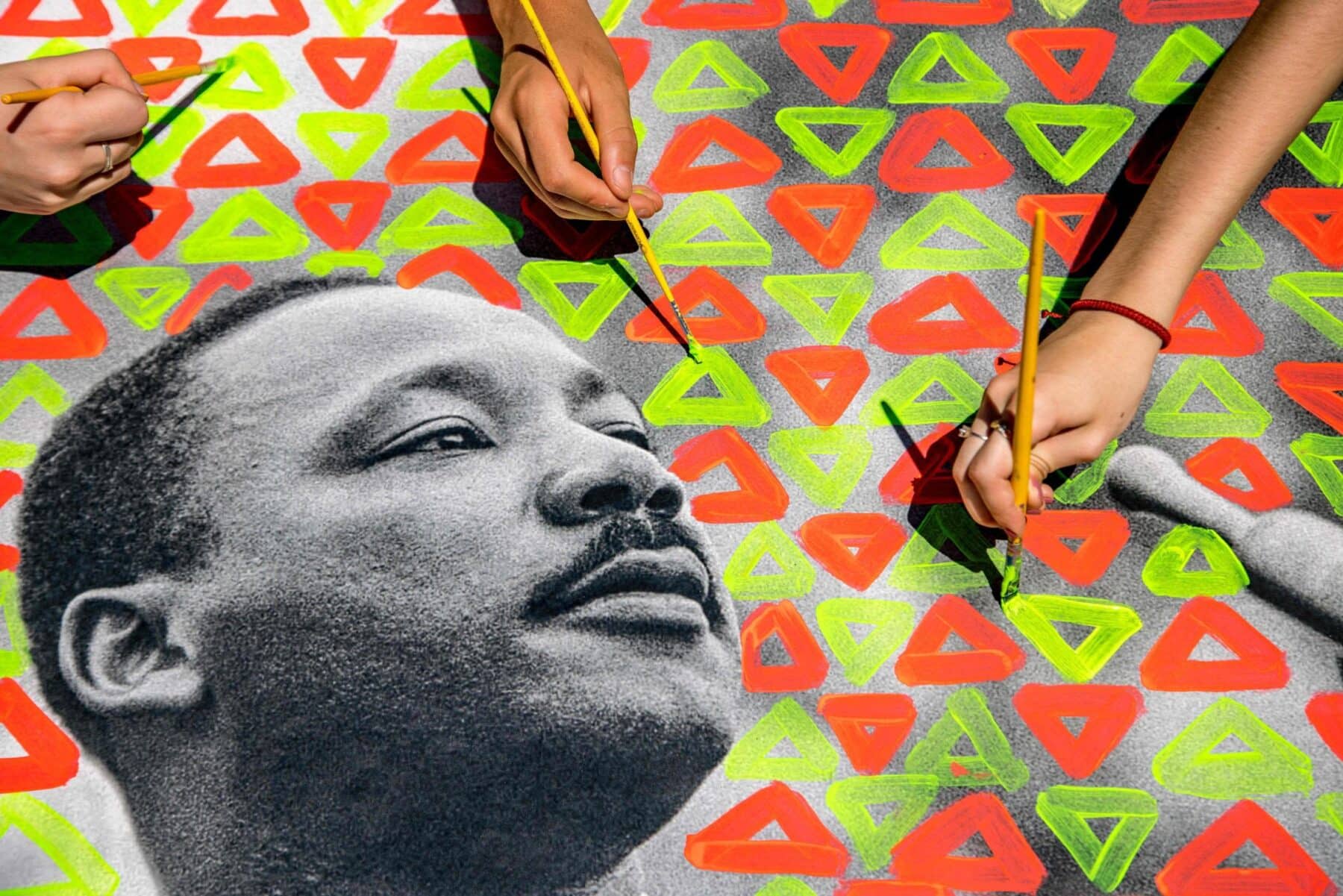
Bias Education
Disrupting bias. Starting early.
Our vision
The Bias Ed Project researches age-appropriate anti-bias education as a standard part of classrooms and homes across the U.S. By reaching children early, these programs will nurture healthier, more empathetic young people who grow into compassionate adults, critical thinkers and pro-democracy citizens.
What is Bias Ed?
The National Association for the Education of Young Children (NAEYC) defines anti-bias education as “a way of teaching that supports children and their families as they develop a sense of identity in a diverse society.”
Can bias be undone?
Bias begins early—and while it may not be easily unlearned, it can be prevented.
Bias develops through a lifetime of experiences, messages, and media exposure. Once internalized, these attitudes are resistant to change; there is no single short-term intervention that can undo a lifetime of learning biases.
So, how do we interrupt these patterns? We start early—before they take hold.
Why is Bias Ed needed?
Research shows that children are as young as 3 months old when they start noticing differences in skin color and other identity markers, and by 3 years old, they express explicit biases. By age 4 or 5, white children, for example, are more likely to choose other white children as friends.
As IARA Director Professor Khalil Gibran Muhammad and Erica Jacqueline Licht wrote in Learning for Justice (Fall 2023):
“We need to help [children of all ages] understand that bias is a product of history, the legacies and ongoing ways that power shapes identities—who counts and who doesn’t.”
Decades of research confirm: Talking about race makes young people more prepared to address racial biases rather than more likely to perpetuate them.
Without that foundation, silence becomes a teacher of its own. As sociologist Margaret Hagerman writes in White Kids: Growing Up With Privilege in a Racially Divided America (2018):
“So while [children] may learn the social norms that it’s inappropriate to talk about race, it is unlikely that they have stopped thinking about it.”
Why now?
Today, honest dialogue about racism faces fierce resistance. Book bans, curricula erasure, and museum censorship are part of a larger effort” to suppress education about race altogether. These efforts obscure the existence of systemic racism and undermine the democratic imperative to address it.
Effective bias education equips children to become critical thinkers and engaged citizens—capable of navigating difference, challenging injustice, and defending truth. In an era of rising far-right movements, that is more essential than ever.
What we’re doing
- Research — We’re mapping effective efforts already underway and asking:
- What programs best teach children about how bias works, and what can prevent it?
- Why are they effective—and for whom?
- Which models can be scaled to a national level?
- Design & Strategy — We are developing practical, research-based frameworks that educators and families can use to implement bias education curricula early and consistently.
- Engagement — We aim to inspire and equip parents, teachers, and school leaders to lead the way in disrupting racism, sexism, xenophobia, and other social harms in education. We will work alongside a growing number of organizations and individuals dedicated to disrupting biases in early childhood education, from researchers and curricula designers developing evidence-based curricula, to advocates organizing for its inclusion in policy and legislation.
Join us
We welcome partnerships with funders, researchers, educators, and advocates who want to contribute their expertise or collaborate. If you’re interested in supporting or joining this important effort, please reach out to iara-project@princeton.edu.
Subscribe to IARA’s newsletter for updates as this project continues.
Report: Antibias Education for Pre-K & K-12
How is antibias education currently being brought to life in classrooms across the U.S.? In Spring 2024, a team of Harvard College students explored this question through three compelling case studies: a public elementary school near Boston with weekly antibias lessons and collaborative teacher planning; a California preschool providing exploratory play grounded in Quaker values of equity and justice; and Learning for Justice, a national education program of the Southern Poverty Law Center offering free, inclusive K-12 curriculum resources.
Consisting of interviews and an extant literature review, the research, conducted by Leanne Alvarado, Cristina DeMeo, and Aileen Luo, with direction from Erica Jacqueline Licht, IARA Research Projects Director—highlights how educators are creating supportive environments for learning about and affirming diverse identities, despite ongoing challenges.

IARA resources on bias in education

A call for anti-bias education
SEPTEMBER, 2023
Anti-bias education is crucial for children of all ages. Identity-based biases lead to everyday forms of peer-to-peer harm. Sometimes the harm is verbal, sometimes physical, but always it is just the beginning for the ways young people practice how bias works in the real world. We need to help them understand that bias is a product of history, the legacies and ongoing ways that power shapes identities—who counts and who doesn’t.
Written by IARA Director Professor Khalil Gibran Muhammad and IARA Research Project Director Erica Licht

How to fight back against the ‘anti-woke’ movement
MAY 12, 2023
Americans are losing the freedom to learn, in an era of book bans, restricted curricula, targeted diversity programs, and other restrictive measures. “But for the first time, a national movement is beginning to defend the freedom to learn in the United States – and it gives me hope that we can reverse the discrimination and authoritarianism infiltrating our schools.” This May, thousands of people in nearly 30 states turned out on college campuses and in public libraries for the #FreedomtoLearn National Day of Action.
Written by IARA Director Professor Khalil Gibran Muhammad

Three little letters that have Florida’s Ron DeSantis on the attack
FEBRUARY 13, 2023
In January, Florida Gov. Ron DeSantis announced plans to ban the College Board’s Advanced Placement African American studies pilot course in his state, saying that the curriculum had a political agenda. The College Board has since revised the course amid a storm of controversy — and strong evidence that DeSantis’ administration had a direct influence on the decision to gut it. The outcome, sadly, has meant diminished national education standards for this vitally important coursework.
Written by IARA Director Professor Khalil Gibran Muhammad and IARA Research Project Director Erica Licht
Past Forward: The Legacy of Racism in Modern-Day America
JANUARY 20, 2023
This recorded edition of ParentEd Talks addresses the importance of teaching an honest history of the enduring legacy of anti-Black racism in the U.S. Discussing race, racism and accurate historical information in school reduces prejudice among students of all racial backgrounds — from kindergarten and beyond. Conversely, ignoring race and racism in education leads to increased prejudice.
Featuring IARA Director Professor Khalil Gibran Muhammad and Executive Director of The Who We Are Project Jeffery Robinson

